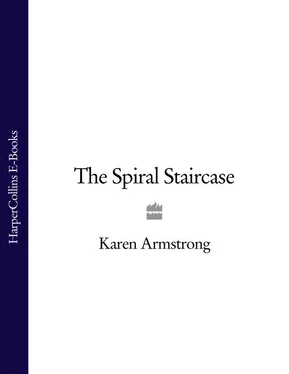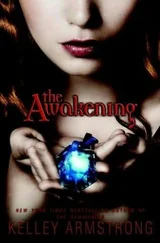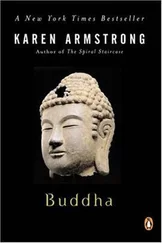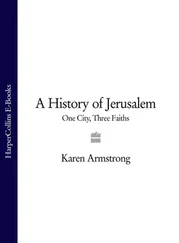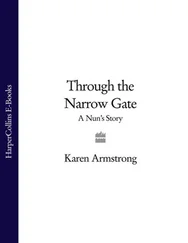I see them all so excellently fair,
I see, not feel, how beautiful they are!
I should have been pierced by the poem, and then have leapt out to meet it. I used to be like that. I remembered how deeply poetry had touched me while I was at school. But yet again, as with my relations with people, there was only deadness, nothingness. I was now impervious even to the literature that I thought I had loved.
An initiation is supposed to make you self-reliant, but mine had made me dependent. As I struggled to fill the requisite number of pages for my essay, I had to face the grim fact that I no longer had ideas of my own. Indeed, I had been carefully trained not to have them. There had been a moment early in the Postulantship, when I had heard a warning bell. We were doing a little course in Apologetics, which explained the rational grounds for faith. I was set an essay: ‘Assess the historical evidence for the Resurrection.’ I had read the requisite textbooks, could see what was required, and duly produced a discussion of the events of the first Easter Sunday that made Jesus’ rising from the tomb as uncontroversial and unproblematic historically as the Battle of Waterloo. This was nonsense, of course, but that did not seem to matter in Apologetics.
‘Yes, Sister, very nice.’ Mother Greta, the pale, delicate nun who was supervising our studies, smiled at me as she handed back my essay. ‘This is a very good piece of work.’
‘But, Mother,’ I suddenly found myself saying. ‘It isn’t true, is it?’
Mother Greta sighed, pushing her hand under her tightly-fitting cap and rubbing her forehead as if to erase unwelcome thoughts. ‘No, Sister,’ she said wearily. ‘It isn’t true. But please don’t tell the others.’
This did not mean that Mother Greta did not believe in the resurrection of Jesus, or that she had lost her faith. But she had studied at the prestigious Catholic University of Louvain in Belgium and knew that the kind of essay I had written was no longer regarded as a respectable intellectual exercise. A careful study of the resurrection stories in the gospels, which consistently contradict each other, shows that these were not factual accounts that could ever satisfy a modern historian, but mythical attempts to describe the religious convictions of the early Christians, who had experienced the risen Jesus as a dynamic presence in their own lives and had made a similar spiritual passage from death to life. As I stared wordlessly back at Mother Greta I knew that, if it had been up to her, she would have scrapped this course in Apologetics and introduced us to a more fruitful study of the New Testament. But, like any nun, she was bound by the orders of her superiors. What I had written was not true, because the insights of faith are not amenable to rational or historical analysis. Even at this early stage, in a confused, incoherent way, I knew this, and Mother Greta knew that I knew it.
It was a sobering moment, and when I look back now on that scene in the Postulantship, with the autumn sun coming through the window, the older nun mentally tired and demoralized, while the postulant gazed at her blankly, both of us deliberately turning our minds away from the light, I wonder what on earth we all thought we were doing. I had been set a quite pointless task. For a week, while preparing my essay, writing it and learning how to dispose of the obvious problems with various mental sleights of hand, I had been doing something perverse. I had been telling an elaborate lie. I had deflected the natural healthy bias of my mind from a truth that was staring me in the face and forced it to deny what should have been as clear as day. Years later, while I was having my breakdown, I learned that Mother Greta had been very anxious indeed about the way we were being trained, had voiced her disapproval, and had been overruled. What had our superiors been about, and why did I not tear up that dishonest piece of work, or at least argue with Mother Greta? I had simply gone along with the whole unholy muddle.
But I was only eighteen years old and this had not been an isolated incident. On the very first day of our Postulantship, Mother Albert, our Mistress, explained that during the first years of our religious lives we would constantly be told things that seemed incredible or irrational. But they only seemed this way because we were lacking in spiritual maturity. We were learning to inhabit a different element from the rest of the world, to breathe another atmosphere. We were still fresh from ‘the world’ and its taints; we still thought and responded like secular people, but now we had to enter into God’s perspective. Had God not told Isaiah:
For my thoughts are not your thoughts,
My ways are not your ways,
For as high as the heavens are above the earth
So are my thoughts above your thoughts, my ways above your ways.
So when we were tempted to question the ideas, principles and customs of the order, we must remember that as yet we were simply not in a position to understand. We were like babies, learning an entirely new language. One day, in the not too distant future, when we had developed spiritually, we would see all these matters quite differently. Until then, we just had to wait patiently, in what the mystics had called the cloud of unknowing, and all would be revealed. So my lying little essay on the Resurrection was part of this larger programme.
So was the fact that I had once, during my Postulantship, spent hours treadling a sewing machine that had no needle. To be fair, this was the result of a misunderstanding, but the underlying principle still applied. I was finding all needlework very difficult indeed, and had just put the good sewing machine in our community room out of action. Furious, Mother Albert told me to practise on an older machine in the adjoining room for half an hour a day. But it had no needle. My mistake was to point this out. Mother Albert had been meaning to replace that needle for some time, but it had completely slipped her mind. She was already angry with me, however, and I was not supposed to answer back in this way. ‘How dare you!’ she said, her voice cold with rage. ‘Don’t you know that a nun must never correct her superior in such a pert manner. “There’s no needle in that machine!”’ she cried, tossing her head in supposed imitation of my defensive manner. ‘You will go to that machine next door, Sister, and work on it every day, needle or no needle, until I give you permission to stop.’
So I did, treadling away at the empty machine, telling myself that because I was acting under obedience, however pointless this exercise might seem to a profane eye, this was the best possible way of spending my time. It was God’s way. I had almost succeeded in quelling the objections that stubbornly erupted in my mind from time to time, when Mother Albert walked into the room two weeks later and stared at me as though I had lost my wits. But this time, when she cried in outraged astonishment, ‘What on earth do you think you are doing?’ I was ready for her.
‘Practising machining, Mother,’ I replied demurely.
‘But there’s no needle in that …’
Even as she spoke, I saw light dawning and realized that she had completely forgotten about the whole thing. She clapped her hand to the back of her head, and turned away abruptly, lips twitching with suppressed mirth. After recovering herself, she gave me a searing lecture on my pride and disobedience. No nun should ever correct her superior, as I had done that day, even if convinced that she was wrong. As far as I was concerned, my superior was right, because she stood in the place of God. It was my wretched intellectual pride that blocked my spiritual advancement, and I would make no progress as long as I refused to regard things from a supernatural point of view.
Читать дальше
